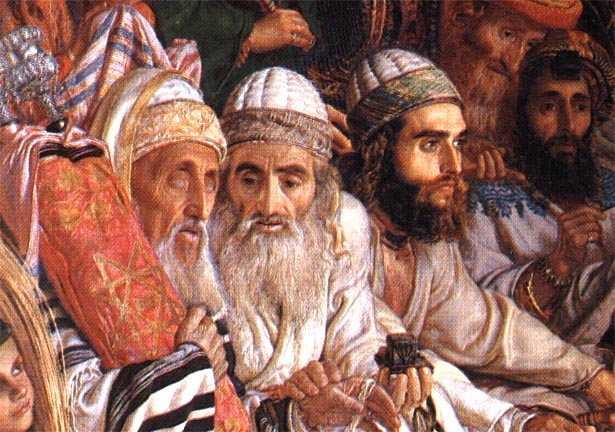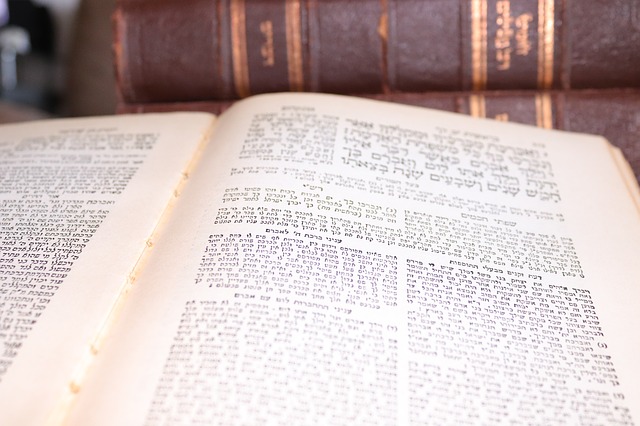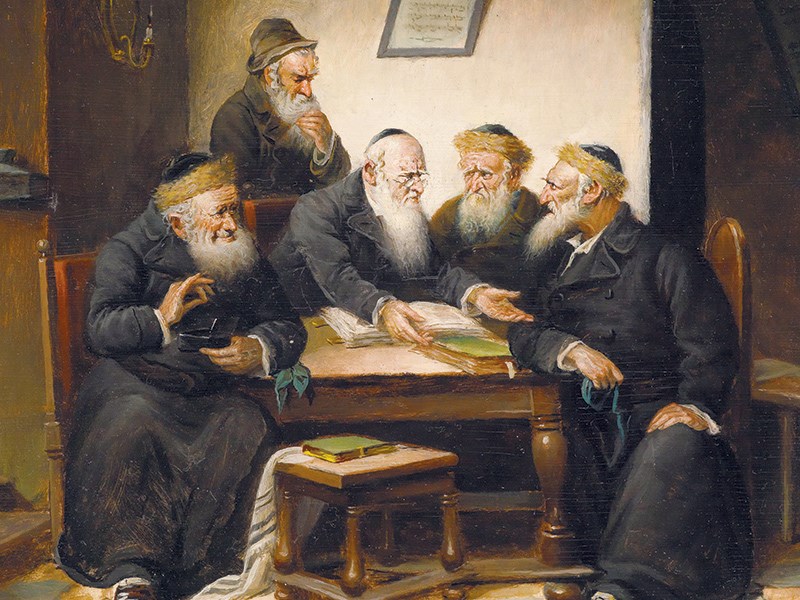Counter to the traditional view of the Oral Law, this model supposes human innovation in the origins and development of the Oral Law. This doesn’t come to negate the authority of the Oral Tradition but to enhance it and give it historical perspective. Despite being man-made, the Oral Law is good for Judaism as a whole in this day and age and is surely in the Torah-spirit.
To understand why the Torah was initially without an Oral Law and then slowly needed one, we will suppose an element in history that may or may not have happened – thus why this is merely a theory.
This theory suggests that civilization has changed much over the generations. That’s not really a theory – that’s more like fact. But my theory is that people back in the days were much more simple and less sophisticated. They were much less detail-oriented and focused more on ideas rather than the logistics and “how”s that we focus on in today’s society. This may be hard to understand how they could possibly ne so different than us today; after all, they were humans just like us. But the fact is that society was so different then in so many ways: the way they acted, their morals, and even the way they thought. Take slavery for as an example for how different people think nowadays to the way they thought back then.
Since they were less detail oriented, laws in the Torah like “do not do any melacha on the Sabbath” was simply understood to be a law against conducting business or doing labor on Shabbat and to have a day of rest. They didn’t put as much thought into it as we do nowadays. Nowadays, when we hear of such a vague law, our mind fills with questions about the definition of melacha and similar practical questions.[1]
As society became more literate and sophisticated in general, they began to add more details to everything. Everything was thought out and as a result, people began asking questions on the details of the vague laws in Torah. In response to these questions, customs began to develop and rules were applied by the sages as to what exactly is considered melacha and similar questions. As the Jews became more and more observant over the years (see here), the rabbis also began to add stringencies to the law that weren’t mandatory but over time became mainstream practice for the religious population. They put much effort in making a standard law for everyone to follow, instead of each person having to ask their local rabbi every time they had a question on the detail of a Mitzvah.[2]
So, while the Oral Law, according to this theory, hasn’t existed at the giving of the Torah – it certainly was a plus in many ways and makes the Torah a practical guidebook for the modern-day Jew as well. If not for this Oral Law, we’d still be asking our local rabbis what melacha means and if we can conduct business virtually and if we can plant the flowers in our backyard on the Sabbath.
The Oral Law also enacted new elements of Judaism that would replace many of the old aspects of Judaism. Judaism was once mostly about sacrificial rituals, the struggle against idol worshipping, and the struggle against sins like incest and extra-marital relationships that we now find easy to keep. The revolution of the synagogue and the Yeshiva system educating on the Oral Law have changed Judaism forever for the better. Why is it for the better? Because Judaism is all about connecting to God and building a relationship with Him. The Oral Law encourages focus on the Law, emphasis on the ritual, and constant devotion to God in our day-to-day lives. The Oral Law also provides the Jewish community with a set culture. With a strong culture, the Jewish community is bound to survive longer than they would have if not for the rabbinic culture.
If the Oral Law was the eventual intention of the Written Torah is questionable, but I think it’s fair to say that God is happy with the initiative to take Judaism and service of God to the next level via the Oral Law.
As for the historical part of this development of the Oral Law, it likely began at the onset of the Second Temple era (the anshei kneses hagedola) and increased over time exponentially. The later sages began to think of what was originally the “tradition of our fathers” as the “tradition from Sinai.” They began to think that the definitions of melacha were surely given at Sinai as a component together with the Written Torah. This trend continues to this day when many Orthodox Jews believe that the entire Oral Law is from Sinai although it is clear from many Talmudic sources that that isn’t the case.
To summarize, this is merely a theory, it attributes human initiative in the Oral Law, and finds that this Oral Law is the fulfillment of the spirit that the Written Torah begged for. However, in my personal opinion, it would seem that the Torah did have at least some oral laws accompanying it as explained here.
___________________
[1] See here for a discussion of practical questions we can have on the Written Torah without any oral interpretations.
[2] It is possible that every time someone had a question about the Law, they would ask their local rabbi who would answer based on his own judgment and understanding of the Law.





I also like the view of Rabbi Tzadok of Lublin, who wrote that Deuteronomy “is the beginning of the Oral Law.” This seems to fit with your last sentence, that, “it would seem that the Torah did have at least some oral laws accompanying it.”